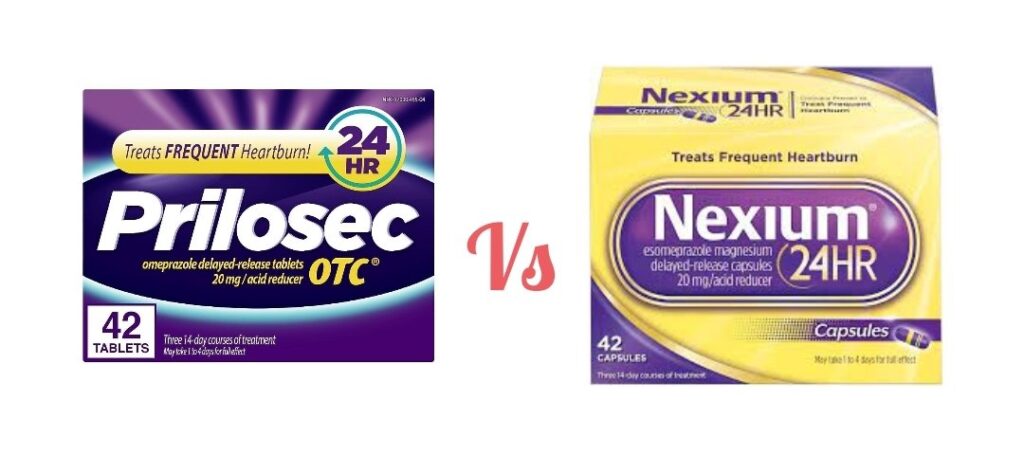
When it comes to managing acid reflux and heartburn, two commonly prescribed medications are Prilosec and Nexium. These medications belong to the same class of drugs known as proton pump inhibitors (PPIs) and are designed to reduce the production of stomach acid. While both Prilosec and Nexium serve a similar purpose, they have subtle differences that can impact their effectiveness, side effects, and cost. In this article, we’ll delve into the key characteristics of Prilosec and Nexium to help you make an informed decision about which medication might be more suitable for your needs.
Prilosec: The Basics
Prilosec, also known by its generic name omeprazole, was one of the earliest PPIs to be introduced in the market. It works by inhibiting the proton pumps in the stomach lining responsible for producing acid. Prilosec is commonly used to treat gastroesophageal reflux disease (GERD), peptic ulcers, and other conditions related to excess stomach acid. Available over-the-counter and in prescription strengths, Prilosec offers a cost-effective option for individuals seeking relief from acid-related symptoms.
Nexium: Understanding the Nuances
Nexium, or esomeprazole, is a newer PPI that is chemically similar to Prilosec. However, Nexium is formulated to be more effective at controlling acid production, allowing for a lower dosage and potentially fewer side effects. It is available both as a prescription and over-the-counter medication. Nexium’s extended release formulation provides longer-lasting relief, making it particularly suitable for individuals with severe or persistent acid reflux.
Comparing Effectiveness
Numerous studies have compared the effectiveness of Prilosec and Nexium in managing acid-related conditions. While both medications are generally effective, Nexium’s unique formulation has shown a slight advantage in terms of providing quicker relief and maintaining lower levels of stomach acid over a longer duration. However, the choice between the two often depends on individual responses and the severity of symptoms.
Potential Side Effects
As with any medication, both Prilosec and Nexium carry the risk of side effects. Common side effects include headache, nausea, and abdominal pain. Long-term use of PPIs has been associated with concerns such as decreased calcium absorption, increased risk of bone fractures, and potential interactions with other medications. It’s crucial to discuss these risks with a healthcare professional before starting any treatment.
Cost Considerations
Cost can be a significant factor when deciding between Prilosec and Nexium. As a generic medication, Prilosec is generally more affordable than Nexium. However, some insurance plans may cover the cost of prescription Nexium, making it more accessible to individuals who prefer this option. Over-the-counter availability of both medications provides added convenience, but it’s advisable to compare prices and consult with a healthcare provider to find the most cost-effective solution.
In the Prilosec vs. Nexium debate, both medications offer effective solutions for managing acid reflux and related conditions. Prilosec’s affordability and availability without a prescription make it a popular choice. On the other hand, Nexium’s advanced formulation and potential for stronger acid control may be preferable for those with more severe symptoms. Ultimately, the decision should be based on individual preferences, severity of symptoms, and discussions with a healthcare professional. Regardless of the choice, seeking relief from acid reflux is crucial for improving overall quality of life.